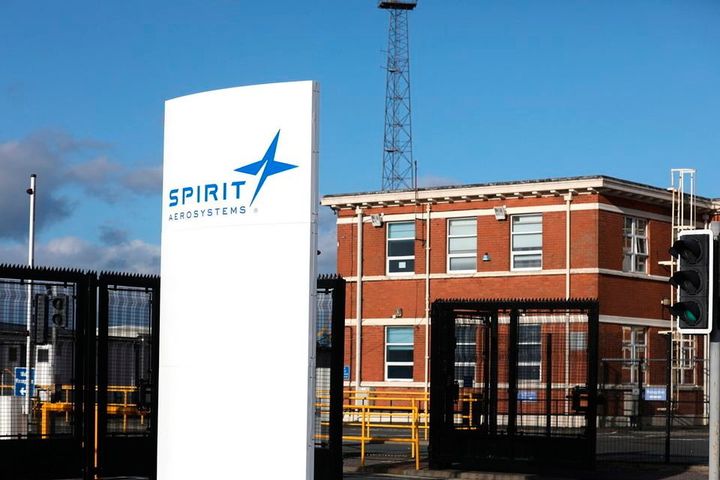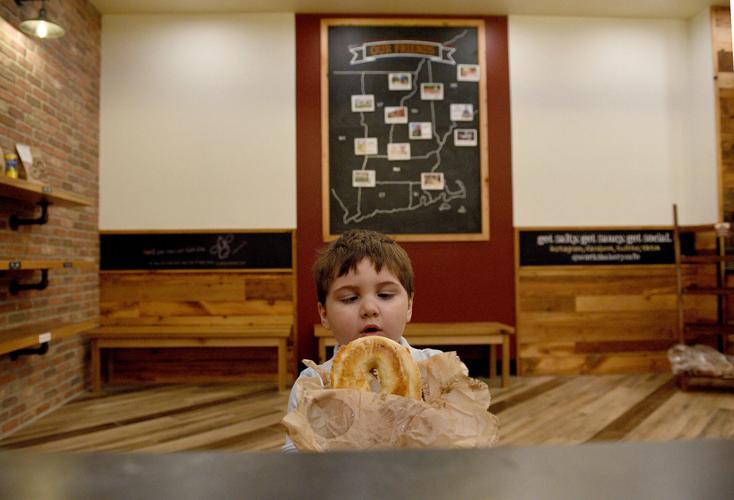Losses have also increased by 50% in the last 12 months – growing to $339m (£255m). It’s also understood a deal to acquire the wider Spirit AeroSystems’ business to Boeing will soon complete, with Airbus eyeing the portion of the plant manufacturing its A220 aircraft wings. In the latest accounts it says Spirit AeroSystems is “permitted to sell” the Belfast business – which files accounts as Short Brothers plc – to one or more third parties.
But it says if an alternative buyer has not been agreed by the time the merger completes – due to complete by mid-2025 – the ownership of Spirit AeroSystems’ Northern Ireland operations “will transfer to Boeing”. Spirit AeroSystems saw its losses grow to $339m (£255m), according to the latest published accounts ending December 2023. It says part of that loss was down to an “onerous contract” provision of $253m (£190m).

It says after a review of its contracts to “reassess the unavoidable costs to fulfil performance obligations” it resulted in the huge charge “in respect of future obligations”. “There charges are predominantly driven by prolonged adverse global inflationary pressures, affecting energy, freight, raw material and other costs in addition to increased interest and labour costs”. And Spirit is looking at cutting costs, it says.
“...
a key focus over the short to medium-term continues to be the delivery on cost reduction initiatives for current programmes”. It say that includes a “longer-term strategic review of cost-optimal business production strategies and working closely with our key customers to reduce procurement costs and increase labour efficiencies”. Spirit AeroSystems, which now employs around 3,400 staff, says the recent losses have been driven predominantly by wider economic factors.
Those include global inflationary pressures – impacting everything from energy costs to freight and raw materials. It says “certain parts of our supply chain have experienced various challenges” and that as a commercial aircraft producer “our business depends on our ability to maintain a healthy supply chain, achieve planned production rate targets, and meet or exceed stringent delivery, performance and reliability standards”. The workforce size grew during the last accounting period – up around 10% from 3,075 from a year earlier.
The manufacturer increased aircraft deliveries during the year – rising to 523 from 424 in 2022. Looking ahead it says energy security has been highlighted as a risk. And as a result it says it’s aiming to move from a reliance on fossil fuels to green energy, and that generated on site.
Spirit AeroSystems recently revived plans to extend its main base here to increase the production of wings for Airbus passenger jets. Back in 2019, Spirit AeroSystems – which was owned by Bombardier – submitted plans for a major extension to its wing production site, which makes the structures for Airbus’s A220 passenger planes. But, it now says that scheme is being revived.
The plans will support “temporary employment opportunities, supporting both direct construction jobs and the wider local supply chain”. And it says in the longer-term the expansion will “facilitate job retention and upskilling of the workforce, ensuring that the highly skilled aerospace sector remains a cornerstone of Northern Ireland’s manufacturing industry”. Since it was granted the green light in 2020, documents say significant external factors, including the Covid-19 pandemic, impacted the “aerospace industry, leading to delays and adjustments in manufacturing targets”.
.
Business

Belfast’s Spirit AeroSystems losses balloon to $1bn in space of four years

Belfast aerospace giant Spirit AeroSystems has grown its four-year losses to more than $1bn.















